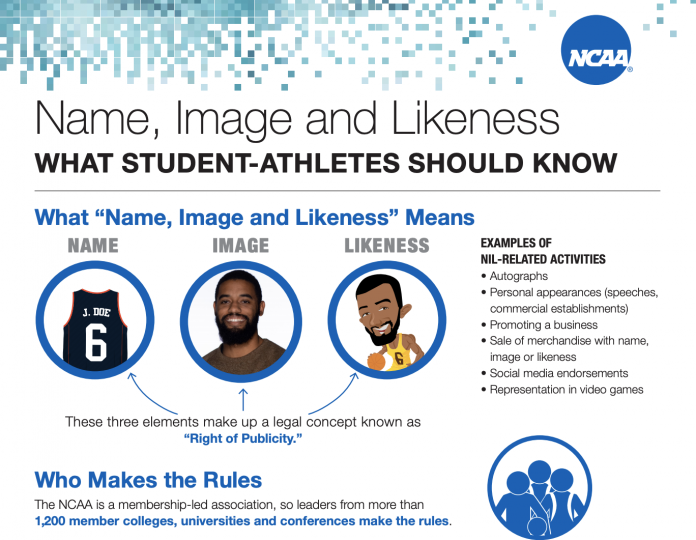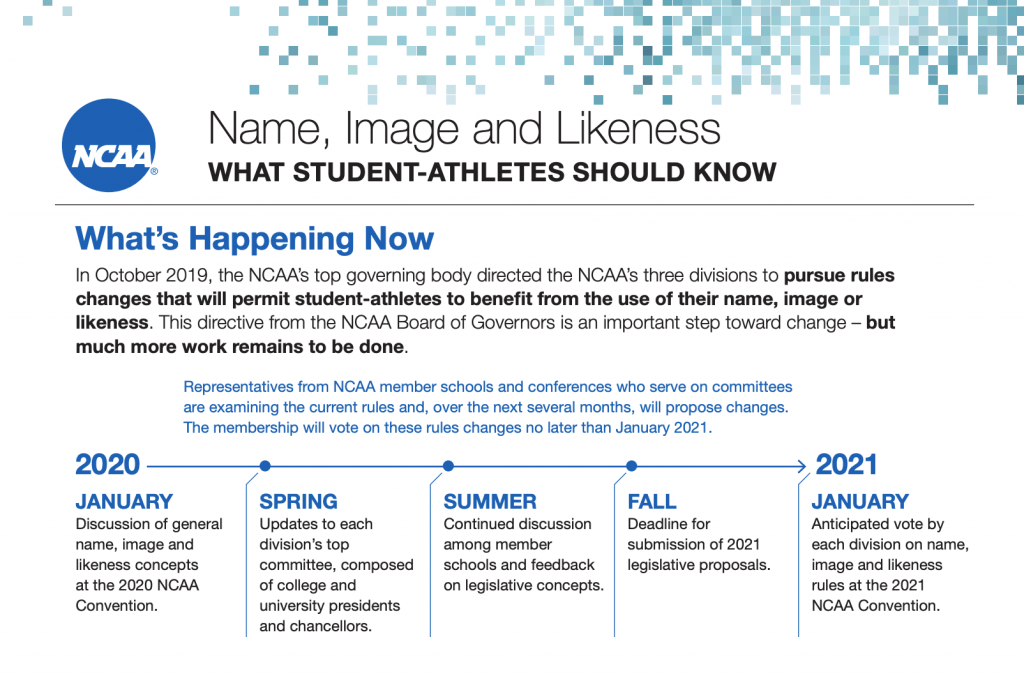
Florida Gov. Ron DeSantis signed a bill allowing college athletes to profit off of their name, image and likeness starting in 2021.
Currently NCAA Division I rules state student-athlete may not use their name, image or likeness to promote or endorse a commercial product or service, even if he or she is not paid to participate in the activity.
The NCAA outlines name, image and likeness-related activities as autographs, personal appearances, promoting a business, social media endorsements and representation in video game. It also includes sale of merchandise with name, image or likeness.
DeSantis signed the bill during a Friday press conference at the University of Miami and said he saw it as a matter of fairness.
“If you have a situation where you have great athletes particularly in sports like football or basketball, who’s name, image, and likeness is being used to make millions and millions of dollars, and then they don’t even have the opportunity to get any of that, there’s something fundamentally unfair,” he said.
Florida will become the first state to allow student-athletes to profit off their name, image and likeness— the bill will officially go into effect on July 1, 2021. California passed a similar bill but it will not go into effect until Jan. 1, 2023.

Florida Sen. Debbie Mayfield, who represents Brevard County in District 17, introduced the bill in October 2019.
Fewer than 2% of student-athletes become professional athletes, according to the NCAA’s recruiting factsheet.
The NCAA’s top governing board voted unanimously to permit students participating in athletics the opportunity to benefit from the use of their name, image and likeness, according to an October 2019 news release.
The action directs each of the NCAA’s three divisions to immediately consider updates to relevant bylaws and policies to include the following guiding principles:
- Assure student-athletes are treated similarly to non-athlete students unless a compelling reason exists to differentiate.
- Maintain the priorities of education and the collegiate experience to provide opportunities for student-athlete success.
- Ensure rules are transparent, focused and enforceable and facilitate fair and balanced competition.
- Make clear the distinction between collegiate and professional opportunities.
- Make clear that compensation for athletics performance or participation is impermissible.
- Reaffirm that student-athletes are students first and not employees of the university.
- Enhance principles of diversity, inclusion and gender equity.
- Protect the recruiting environment and prohibit inducements to select, remain at, or transfer to a specific institution.
Florida officially signing an NIL bill that’ll be in effect in 2021 will likely encourage the NCAA to take quick action. The NCAA Board of Governors said in April it will engage Congress in the following discussions:
- Ensuring federal preemption over state name, image and likeness laws.
- Establishing a “safe harbor” for the Association to provide protection against lawsuits filed for name, image and likeness rules.
- Safeguarding the nonemployment status of student-athletes.
- Maintaining the distinction between college athletes and professional athletes.
- Upholding the NCAA’s values, including diversity, inclusion and gender equity.
“Throughout our efforts to enhance support for college athletes, the NCAA has relied upon considerable feedback from and the engagement of our members, including numerous student-athletes, from all three divisions,” NCAA Board of Governors chair Michael Drake said in April. “Allowing promotions and third-party endorsements is uncharted territory.”



